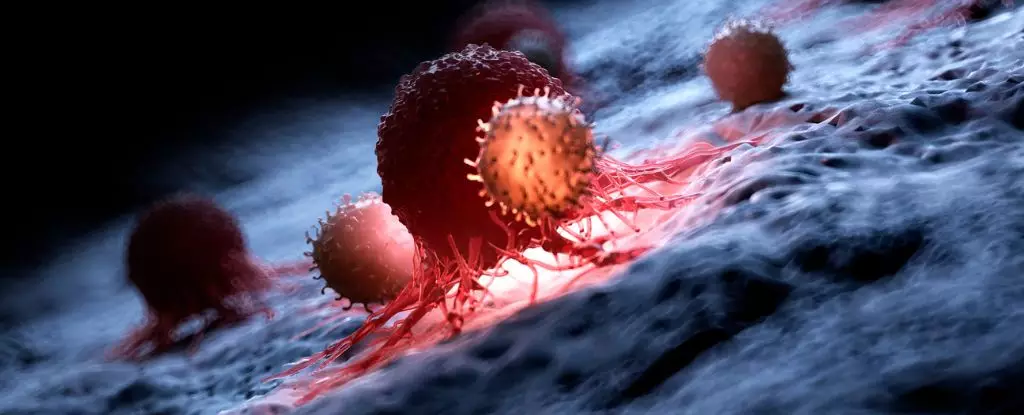In a groundbreaking discovery, scientists have uncovered a method to unleash the destructive potential of cancerous tumors by triggering a ‘timer bomb’ within the cells that line a tumor’s associated blood vessels. This breakthrough could revolutionize the field of cancer immunotherapy, offering new hope for patients battling this debilitating disease.
The ‘Death’ Receptor: Fas
Previously overlooked as a target for cancer immunotherapy, the death receptor Fas (or CD95) has now emerged as a key player in the fight against tumors. When activated by the appropriate antibody, Fas triggers the programmed death of the cell, opening up a pathway for immune cells to enter and combat the cancer. This discovery has significant implications for the development of novel treatments.
Past Failures and the Road Ahead
Despite the potential of targeting Fas, previous efforts to utilize this receptor have yielded disappointing results. No Fas antibody has successfully progressed to clinical trials. However, scientists at the University of California, Davis (UCD) and Indiana University have identified specific antibodies that effectively trigger self-implosion when bound to Fas receptors. This newfound knowledge may pave the way for future therapeutic advancements.
The ability to open up tumor microenvironments through the activation of Fas receptors holds promise for CAR-T therapy. CAR-T therapy utilizes genetically modified white blood cells, known as T-cells, to target and destroy cancerous cells. However, these engineered immune cells often struggle to infiltrate solid tumors. By blowing open the access points using Fas receptor activation, CAR-T therapy could gain access to a greater number of targets, significantly enhancing its effectiveness.
In recent experiments conducted at UCD, researchers developed two engineered antibodies that displayed remarkable effectiveness in causing bystander cells to self-implode when attached to Fas receptors. This efficacy was observed not only in ovarian cancer models but also in other tumor cell lines tested in the lab. The Fas ligand developed during these experiments engaged critical components of the Fas receptor, suggesting potential future drug targets.
Personalized Treatment Approaches
The discovery of the epitope, a specific part of the Fas receptor, highlights the importance of assessing a patient’s Fas status before initiating CAR-T therapy. Understanding the mutations around the identified epitope could serve as a definitive marker for treatment efficacy. This personalized approach has the potential to revolutionize cancer treatment and maximize the benefits of CAR-T therapy.
Unlocking the doors to cancerous tumors through the activation of Fas receptors presents a promising breakthrough in cancer immunotherapy. By targeting these receptors and causing self-implosion of bystander cells, CAR-T therapy and other cancer treatments can gain access to previously inaccessible targets within solid tumors. Continued research in this field holds the key to more effective and personalized cancer treatment approaches.


Leave a Reply